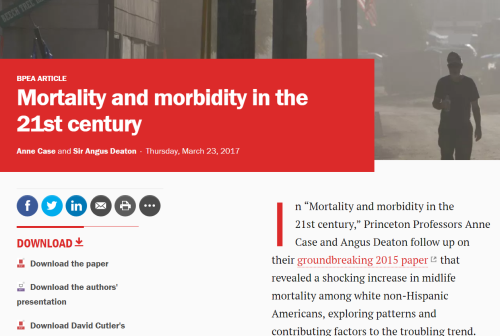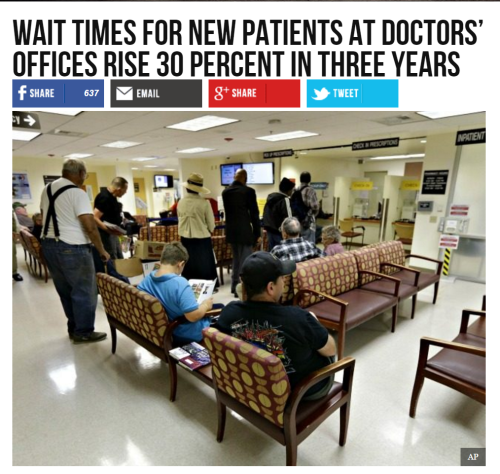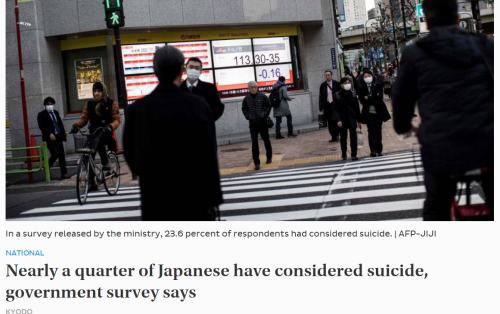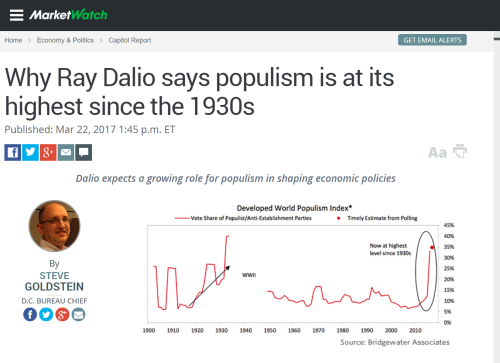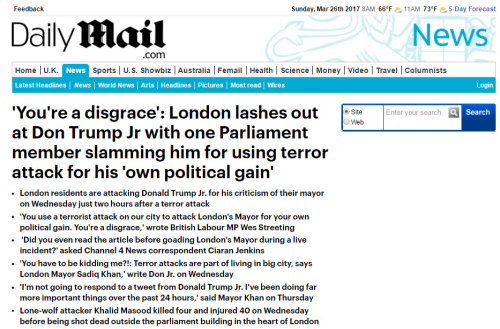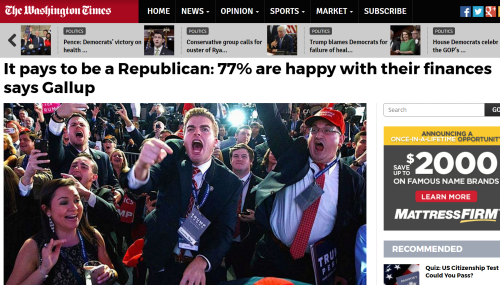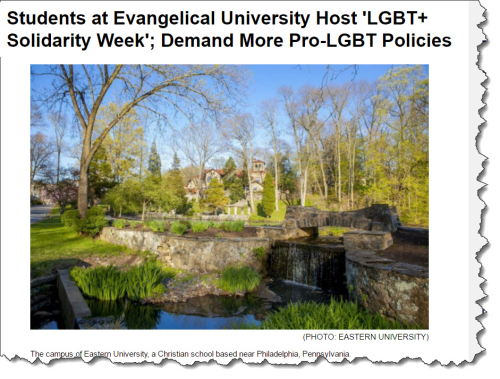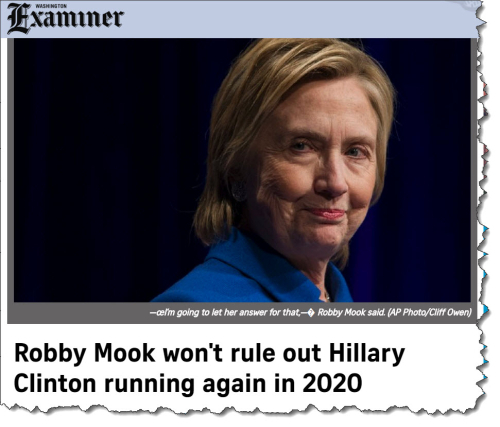James L. Paris's Blog, page 96
March 29, 2017
Researchers: Diminished Economic Prospects Account for Rising Mortality Rates Among Whites
According to two esteemed researchers at Princeton University, the mortality rate of whites is very much on the rise, and the culprit appears to be, of all things, growing economic hopelessness.
Specifically, say Anne Case and Angus Deaton, it is the dim financial prospects of younger, less-educated whites that are pulling the numbers down for the demographic, overall.
Case and Deaton claim that a ���cumulative disadvantage��� ensues over time with young whites, one that���s rooted in their inability to make solid professional headway as they ascend to adulthood. The long-term physical consequences of their personal economic troubles appear to include increases in both ���deaths of despair,��� like those directly connected to things like drug and alcohol use, as well as suicide���and mortality from more ���regular��� killers like cancer and heart disease, to which a growing number of whites��� lack of financial resources and higher levels of personal worry help facilitate.
���You used to be able to get a really good job with a high school diploma. A job with on-the-job training, a job with benefits. You could expect to move up,��� Case says.
Now, however, not so much.
���Ultimately, we see our story as about the collapse of the white, high-school-educated working class after its heyday in the early 1970s, and the pathologies that accompany that decline,��� write the researchers.
By Robert G. Yetman, Jr. Editor At Large
Physician Wait Times Soar in Era of Government Health Care
It is taking longer and longer for people to get in to see doctors.
Breitbart is reporting on the results of a new survey by Merritt Hawkins, a physician search firm, that reveal the length of time it is taking new patients to get in to see a doctor in 15 of America���s biggest cities has risen an extraordinary 30 percent ��� to an average of 24 days - since 2014.
Merritt Hawkins president Mark Smith said in statement, ���Physician appointment wait times are the longest they have been since we began conducting the survey. Growing physician appointment wait times are a significant indicator that the nation is experiencing a shortage of physicians.���
���Finding a physician who can see you today, or three weeks from today, can be a challenge, even in large urban areas where there is a relatively robust supply of doctors,��� said Smith. ���The challenge becomes even more difficult in smaller communities that have fewer physicians per population.���
Merritt Hawkins says the expansion of what is, in essence, government health care, placed on steroids with the advent of Obamacare, is largely to blame for the problem. One consequence of the Affordable Care Act is that many additional millions of Americans are now in the Medicaid system. The problem (for physicians) is that Medicaid pays only 56 percent of what private insurance pays, and so there is a strong financial disincentive for doctors to refrain from treating patients whose form of coverage is Medicaid. According to the Breitbart piece, doctors in the largest cities are accepting Medicaid at a rate barely above 50 percent. The result? Millions and millions of folks who ostensibly have coverage cannot actually access services in anything approaching a timely fashion���if at all.
By Robert G. Yetman, Jr. Editor At Large
March 27, 2017
Survey: One in Four Japanese Has Considered Suicide
Well, this is rather depressing.
According to Japan���s health ministry, almost one-quarter of that country���s citizenry have contemplated suicide.
What in the world?
The health ministry���s survey reveals that a total of 23.6 percent of respondents considered killing themselves. More women than men have suicidal thoughts, according to the data; 25.6 percent of women have considered it, while 21.4 percent of men have done so.
That said, more men than women actually kill themselves in Japan, at a rate slightly greater than two to one.
A Newsweek article on the disturbing information actually suggests, perhaps inadvertently, Japan���s lack of a Christian orientation may, in part, account for the high suicide rate: ���In Japan, suicide is not considered to be a sin, because there is no Christian tradition.���
As for how those who have considered suicide but don���t actually follow through manage to suppress those thoughts, the survey details that some simply apply themselves more fully to either work or hobbies, while others find success in talking things out with people close to them.
Revealingly, the Newsweek article also mentions that mental health services are largely invisible in Japan, with fewer than seven percent of survey respondents indicating they were aware of suicide prevention assistance.
By Robert G. Yetman, Jr. Editor At Large
Billionaire Hedge Fund Manager Says Populism Will Be the Real Economic Force, Going Forward
Ray Dalio, the founder of Bridgewater Associates, estimated by some to be now the world���s largest hedge fund, believes that the momentum of modern-day populism is such that it is presently in the process of replacing ���classic monetary and fiscal policies��� as the paradigm by which economic conditions, and prospective changes thereto, are evaluated.
In a post written for LinkedIn, one that has gained media traction very quickly, including over at MarketWatch, Dalio details both the history of populism, as well as the trend toward populism again throughout much of the developed world. In defining the characteristics of populism, Dalio writes:
���Populism is a political and social phenomenon that arises from the common man, typically not well- educated, being fed up with 1) wealth and opportunity gaps, 2) perceived cultural threats from those with different values in the country and from outsiders, 3) the ���establishment elites��� in positions of power, and 4) government not working effectively for them. These sentiments lead that constituency to put strong leaders in power. Populist leaders are typically confrontational rather than collaborative and exclusive rather than inclusive. As a result, conflicts typically occur between opposing factions (usually the economic and socially left versus the right), both within the country and between countries. These conflicts typically become progressively more forceful in self-reinforcing ways.���
As for Donald Trump, specifically, Dalio admits to being a little suspicious about just how deeply-rooted his populist inclinations are, saying, ���We have more questions than answers about him and are using these other cases to assess him against by seeing if he follows a more archetypical path or if he deviates from it significantly.���
The matter of Trump���s commitment to populism aside, it is easy to understand why a wealthy hedge fund manager would be unhappy with populism as a determinant of economic policy, and that populism will serve to be the overriding global economic force, going forward, is the clear impression with which readers of this piece (and, particularly, the unabridged version from which the LinkedIn article was written) are left. As for the definitional characteristics of populism outlined by Dalio, it is, honestly, difficult to disagree with any of them, even as painful as it might be for adherents of populism to read feature descriptions of themselves like ���not well-educated.��� That said, there are lots of populists out there who ���get it,��� including many who are very well-educated.
In other words, those who can clearly discern Dalio���s other bases for the rise of populism, like ���wealth and opportunity gaps,��� ���cultural threats (which are not always merely ���perceived,��� as Dalio would have us believe), the lopsided influence that ���establishment elites��� have over regular folks, and ineffective government, are correctly and accurately doing so throughout much of the Western world today, which means that these dumb rubes are seeing things as they are not by virtue of the ignorance of which Dalio and his ilk think they���re possessed, but in spite of it.
Ultimately, anyone with a truly objective worldview, and a little common sense, is capable of embracing self-evident truths, without regard to how much, or how little, book-learnin��� they have. A global populist movement threatens the system by which acutely-exploitative people like Dalio have been able to grossly benefit, and they clearly don���t like it. Their displeasure is understandable, but, finally, of no concern to those who���ve had enough.
By Robert G. Yetman, Jr. Editor At Large
March 26, 2017
In Wake of London Terror Attack, Donald Trump, Jr. Steps into London Mayor for Previous Comments
Months ago, while London Mayor Sadiq Khan was in America on a goodwill trip, Manhattan and the Jersey shore were rocked by a series of bombs detonated by what turned out to be a ���lone wolf��� terrorist named Ahmad Khan Rahami. Immediately following the attacks, Mayor Khan said, in part, to reporters that it ���is a reality I'm afraid that London, New York, other major cities around the world have got to be prepared for these sorts of things,��� and that such attacks are now ���part and parcel��� of life in a big city.
At the time, many were aghast that the mayor of a global hub would adopt such a tone of resignation in the face of a vicious terror attack. Well, last week, following the London terror incident, one person very publicly reminded Mayor Khan of what he said back in September���and that person was none other than Donald Trump, Jr., son of the president.
As detailed in the Daily Mail, following last week���s attack, Trump re-tweeted an article from last September that contained Khan���s comments about getting on in the age of terror, and added his own brief commentary:
���You have to be kidding me?!���
Unsurprisingly, the younger Trump���s truth bomb was hammered throughout social media platforms as being insensitive, with one Twitter user asking, ���Is it really appropriate, considering your father���s position and what���s happening today, to attack the Mayor of London?���
Many others, however, came to Trump���s defense, pointing out that the real travesty was the stance taken by Khan many months before, and not the simple tweet reminding him of it.
By Robert G. Yetman, Jr. Editor At Large
Gallup: Over 75 Percent of Republicans Say They���re Happy with Financial Situations Now
What a difference an election makes���?
In a (relative) blink of an eye, those who identify as Republican feel pretty darn good about their financial circumstances these days���simply by virtue of being Republican, apparently.
The Washington Times is reporting on the results of a recent Gallup Poll that reveals the election of Donald Trump has prompted a significant change ��� in opposite directions - in the way Republicans and Democrats, respectively, feel about their personal money situations.
According to the survey of 3,400 respondents, 77 percent of Republicans said they are ���feeling better about their finances these days.��� Only 43 percent of Democrats indicated the same sentiment.
Additionally, 71 percent of Republicans say they are in a position to make a major purchase, while only 54 percent of Democrats agree.
���Republicans have become significantly more positive about their financial situation, while Democrats have grown more negative about theirs,��� says Frank Newport, Gallup Poll director.
���The shift in Republicans��� and Democrats��� feelings about their money has occurred for the most part since Donald Trump won the presidential election in November,��� continues Newport. ���Republicans��� financial optimism grew as Democrats��� fell. But it was not until February, Trump���s first full month in office, that Republicans��� optimism significantly outpaced Democrats. The current pattern looks like a near-reversal of what it was during most of Barack Obama���s last year in office, when a majority of Democrats vs. less than half of Republicans felt good about the money they had to spend.���
By Robert G. Yetman, Jr. Editor At Large
March 24, 2017
Survey: Over 60 Percent of American Workers Say They Will Need Less than $1 Million for Retirement
As the profile of the American retiree continues to change, the answer to the age-old (no pun intended) question about how much savings you need in retirement is no longer as static as it once was, either.
Decades ago, the pat answer for the average American was $1 million; having $1 million set aside in savings at retirement meant that you could tap your account at the rate of five percent per year and receive $50,000 annually without (in what was an average market year back then) risking the principal.
However, a wildly-unpredictable era in the performance of equities markets has ushered in lower suggested withdrawal rates of two to three percent per year. At a withdrawal rate of three percent, one���s retirement savings would have to total nearly $1,700,000.00 to receive the same $50,000 per year.
Based on what we know about how badly Americans are doing at saving much money at all these days, expecting an appreciable number of them to have accumulated a sum that large by retirement is unrealistic.
Interestingly, many of them seem to agree, but rather than be frightened by the prospect of missing the mark, they seem to be readjusting their expectations.
As mentioned in an article over at CNBC.com, a recent retirement confidence survey by the Employee Benefit Research Institute points out that roughly two-thirds of Americans say they will not need as much as $ 1 million socked away in order to manage retirement.
That���s a lot of people, to be sure, considering how long the culture has been inundated with the message that even Joe Average should have a million bucks tucked away when he stops working altogether.
Ahh...and THAT might be the very issue that has prompted so many Americans took like at their retirement savings needs so differently; other data regularly points out that more and more Americans plan to work in some capacity during retirement, essentially eliminating the very concept of retirement altogether.
Let���s face it, if you���re still making, say, $1,500 per month in earnings, that���s $1,500 per month less that has to be covered by interest derived from your retirement account(s). Factor in even a diminished monthly check from Social Security, and now it���s possible that you can get by on a nest egg that���s quite a bit smaller than $1 million.
Of course, there���s considerable risk in making financial projections based on the assumption that you���ll work throughout retirement, including the prominent risk that your health will suddenly fail in a way that not only makes continued employment prohibitive, but also creates an acute, dramatic strain on whatever financial resources you have managed to accrue.
Nevertheless, more and more people are confidently making such plans and assuming the risks.
Will it all work out?
That very much remains to be seen.
By Robert G. Yetman, Jr. Editor At Large
Group Initiates Effort to Crowd-Source Funding for Trump Border Wall��������
Mexico may end up paying for the border wall, but a new outfit called the America First Foundation is taking it upon itself to help ensure there���s money for the project, regardless of who eventually foots the bill.
How are they helping? By taking donations.
That���s right ��� Trump���s much-ballyhooed border wall may be built, at least in part, by contributions to the effort made by John Q. Public.
Steven Vulich, vice president of the America First Foundation and one of the group���s co-founders, told The Daily Caller, ���They are going to put up the wall. We���re just trying to help.���
A post at the group���s Facebook Page reads, in part, ���This Non-Profit was created to help fund and build that wall and show the world what American Determination and Strength is all about.���
Vulich points out that the group���s campaign to generate donations for funding the border wall is just starting to gain traction in a variety of forums, including throughout social media; as a matter of fact, a piece about the America First Foundation���s mission appeared on a recent edition of Fox News Channel���s Fox & Friends morning show.
According to Vulich, any money raised will go directly to fund construction of the wall. Ideally, he says, the foundation will be able to directly pay those contractors chosen for the actual construction, and the group plans to work with the new administration, as well as the Department of Homeland Security, to make that happen.
By Robert G. Yetman, Jr. Editor At Large
March 23, 2017
Students at Evangelical University in Pennsylvania Become Pro-LGBT Activists on Campus
It appears that no college campus is safe any longer from the radical student elements of political correctness, social justice warrior-ism, and all the rest of it.
According to The Christian Post, Eastern University, an ostensibly Christian school situated near Philadelphia, Pennsylvania, found itself last week the platform for something called ���LGBT+ Solidarity Week,��� courtesy of the student group Refuge, as well as the Political Activism Club.
One Eastern student, writing at the social content site Odyssey, outlined the five goals of LGBT+ Solidarity Week: ���Provide sensitivity training for faculty;��� ���Recognize Refuge as a safe space instead of a controversial group;��� ���Remove the phrase ���between a man and a woman��� from the definition of marriage in the student handbook;��� ���Remove the phrase ���referring to the anatomical sex of the student��� that is used when referring to housing placement;��� and ���Remove the phrase ���homosexual conduct��� from the examples of ���moral turpitude��� in the faculty handbook.���
According to Eastern���s webpage devoted to describing its Clubs and Organizations, ���the members of Refuge are committed to creating an atmosphere of support for those who are lesbian, gay, bisexual, transgender, or questioning their sexuality; educating other students at Eastern University about sexual orientation and gender identity issues through community and conversation; and working towards understanding how students should respond to one another and incorporate what they have learned as members of the Eastern University community.���
Ironically, Eastern University was originally founded back in 1925 to be ���a theologically conservative alternative to a nearby liberal seminary,��� according to The Christian Post.
Oddly juxtaposed with what is clearly a stridently leftist presence on campus is the university���s current student handbook, which declares, among other traditional ideas, that ���as a Christian community, Eastern University expects a sexual lifestyle that is consistent with our understanding of biblical teaching.���
By Robert G. Yetman, Jr. Editor At Large
Former Clinton Campaign Manager Noncommittal When Asked If Hillary Might Again Seek Presidency
And you thought that Hillary was likely referring to something along the lines of being a political pundit, or perhaps even making a run for New York City���s mayoral seat, when she said last week that she was ���ready to come out of the woods.���
You surely didn���t think she had another campaign for president on the brain.
Well, perhaps she does.
As reported by the Washington Examiner, Robby Mook, Clinton���s manager of her 2016 campaign, appeared Monday night on MSNBC���s For the Record with Greta and was asked by show host Greta Van Susteren, ���What are the odds of her running again?���
���I���m going to let her answer for that,��� Mook responded.
Van Susteren, unwilling to let the matter drop, followed up by asking Mook, ���Do you want to guess?���
To which Mook replied:
���I think what happens right now, we���ve got to get to the bottom of what happened in 2016 then we can start worrying about the next cycle. But we���ve got to make sure that this cannot happen again in two years or four years to anybody else.���
Here���s what no one heard from one of the people closest to Clinton when he was asked if she might throw her hat in the White House ring yet again: An unequivocal ���no.��� Beyond that, Mook���s answer to Van Susteren���s follow-up question clearly seemed to suggest that there had been some talk within Clinton���s inner circle about at least the possibility of running in 2020.
Surprised?
While most would likely be taken aback to see Clinton mount another candidacy for president in four years, it���s not as far-fetched an idea as it might seem at first blush. The Clintons have an unquestionable lust for power, and, right now, they are as far removed from it as they have been in a long, long time. Then there is Hillary���s recent ���ready to come out of the woods��� announcement. Some have speculated that it means she will serve as an advisor somewhere, or that she might, indeed, run for mayor of New York City, but would either job really satisfy the ego of Hillary Clinton, particularly considering the corridors of power in which she has previously walked?
Let���s put it this way: If Hillary announces her candidacy for president when the next election cycle cranks up, and you���re shocked to hear it���then you haven���t been paying close enough attention.
By Robert G. Yetman, Jr. Editor At Large

